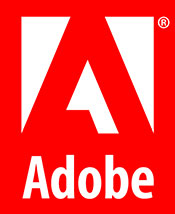Adobe became a highly supportive, vocal and adamant supporter of OpenStand early on in its genesis. In March of 2013, Adobe joined Cisco in sponsoring the IEEE Open Future Reception at SXSW, in an effort to build awareness about the importance of OpenStand principles among media and key influencers in industry, government, media and other sectors. The firm released a blog post highlighting its support of OpenStand.
“Our rationale for this was simple—OpenStand is good for the Web, good for users, and good for Adobe,” said Carl Cargill, Standards Principal for Adobe, “It increases innovation, openness, and allows greater participation in evolving the Internet.”
As a global leader in the development of multimedia and Internet application software, Adobe’s support of the Modern Paradigm for Standards has been good for the company and points industry in the right direction for the development of global design principles that drive global, seamless development. In an era of almost ubiquitous access, proliferation of devices, convergence this type of stance is essential.
Dave McAllister, Director of Accessibility at Adobe, says, “No matter what we’re doing in standards or what we’re doing in specifications, we feel they should be available for anyone to make use of.”
Without standardization, interoperability between platforms and complimentary services would result in an increasingly complex, dysfunctional and frustrating experience. Developers would waste time and energy to “recreate the wheel” instead of collaboratively building upon established best practices to expand existing technology and capabilities. But beyond this, there’s an argument to be made that the open source culture is one that fuels the free flow of ideas and increases creativity – which is something Adobe readily supports.
In its spirit of support for OpenStand principles, Adobe has also lent its support to other organizations and venues working to implement open standards, including the W3C, the Web Platform Docs (WPD) project, Test the Web Forward, HTML5, WebKit specs and metadata standards. All of these avenues are crucial to the overall goal of transparency and consensus in Internet standards.
Active support from corporations like Adobe encourage OpenStand advocacy, participation and support from other industry players.


